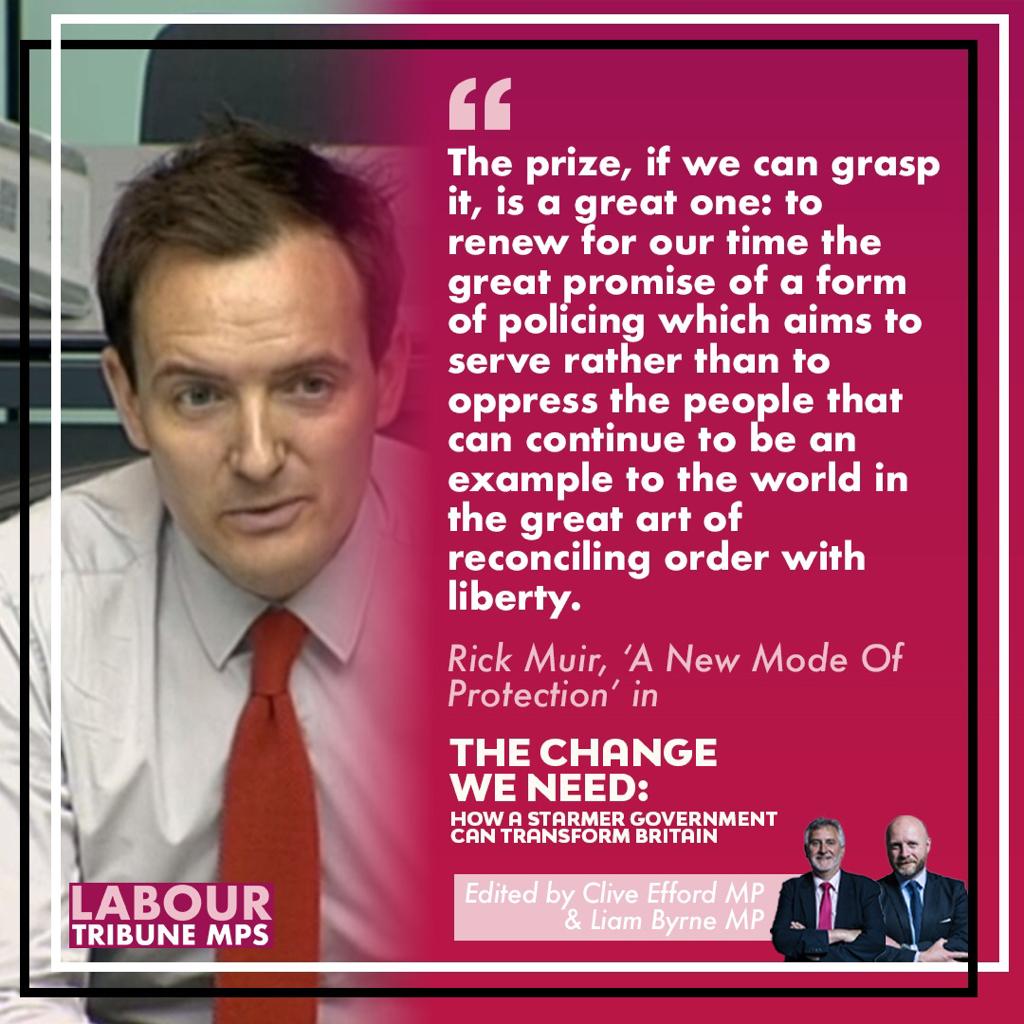Re-imagining policing for the 21st century
It is almost 200 years since Sir Robert Peel founded the Metropolitan Police. He did so in response to the social tumult unleashed by the industrial revolution, which meant that the country’s long standing and largely voluntary policing arrangements were simply incapable of maintaining order in a society based on factory work and experiencing rapid urbanisation. Two centuries on we are living through a new revolution, the digital revolution, whose impact on the way we live is at least as significant as that in Peel’s time and yet our policing institutions remain largely unchanged.
A recent independent review of the police service, chaired by Sir Michael Barber and carried out by the Police Foundation, concluded that society is changing in ways that require radical reform to the way we police and, more widely, to the way we go about promoting public safety.
The first thing to note is that traditional crime (all crime excluding cyber crime and fraud) has fallen by 70 per cent since 1995. We have seen huge falls in violent crime, burglary and car theft over the last three decades. In place of those traditional types of crime, the internet has become an entirely new arena for crime and harm. In the year to March 2022 44 per cent of all crime affecting victims in England and Wales was just fraud (most of which is cyber-enabled), and fraud and cyber crime made up 53 per cent of crime. And yet our policing institutions have yet to catch up: less than 1 per cent of the police workforce specialises in economic crime and just 0.6 per cent of reported frauds result in a conviction.
It is not just technology that is changing the context. The police are now asked to respond to a whole set of complex social problems, such as missing person incidents and mental health crises, that are stretching both their capacity and capabilities. Victims of previously marginalised forms of violence and abuse, particularly against women and girls, are now rightly demanding that these crimes are taken seriously. This has transformed the nature of police investigative work. Finally, climate change is generating enormous natural, political and social turbulence which poses a challenge for those charged with keeping the peace and responding to natural disasters.
How should we respond to these new challenges? First, there is a capacity challenge: the police cannot successfully deal with these matters on their own. As a generalist emergency response service they will always be required to respond to a whole range of social problems, most of them not related to crime. The solution is to mobilise a wider range of social actors in seeking to prevent these problems from happening in the first place. As the first step towards doing this the Barber review recommended establishing a new Crime Prevention Agency, whose remit would be to develop a much more systematic approach to preventing crime and wider harms. In particular the new agency should be focused on driving down exploding volumes of fraud and cyber crime and would have powers to make businesses act to prevent these types of crime.
Second, we need a police service that has the right capabilities to tackle the changing mix of public safety threats we face. Most importantly the police need legitimacy and to rebuild public trust, which has been damaged by a whole succession of scandals in the Met as well as a long legacy of institutional racism. This means restoring proper neighbourhood policing to re-connect the police with local communities, it means reforming the police misconduct system to ensure bad officers are removed quickly and it means strengthening leadership development programmes at all levels, so that police leaders from sergeants to chief officers are equipped to call out bad behaviour and tackle toxic cultures wherever they exist.
Police officers and staff also need the right skills to be able to tackle future challenges. We identified significant gaps in people skills (essential to improving legitimacy), digital skills and investigatory skills. There is currently a national shortage of 7000 detectives. To tackle these skills gaps we need greater workforce planning at the centre and to expand the entry routes into policing. We also need a radical overhaul of police learning and development. Police officers and staff are clear that the quality of training they are offered is not good enough and is more designed to meet the short term tactical needs of their organisation rather than their own development as professionals. As with the medical professions policing needs a culture of career long learning and development and there should be an expectation of high standards. We should introduce a Licence to Practise for police officers to ensure that they are continually refreshing their skills and meeting the standards that the public, and most police officers, expect.
Finally, policing lacks the organisational platform to deliver the capabilities required. Most crime is now online and yet 95 per cent of the police budget goes through 43 local police forces which lack the capability to tackle cross border and internet enabled crime. Local forces should focus on local policing (neighbourhood policing, 999 response, local crime) while specialist functions (firearms, cyber crime, economic crime etc) should be delivered through new regional police units, where all the evidence suggests they can be provided much more consistently and effectively. The national landscape needs to change: there are too many bodies, few of whom have any powers to achieve their goals. There should be three bodies at the national level: an organisation to prevent crime (our Crime Prevention Agency), an organisation to tackle serious and organised crime (an expanded National Crime Agency) and an organisation to improve policing (a reformed College of Policing with powers to drive change).
In 1828 Robert Peel told parliament that ‘the time has come when from the increase in its population, the enlargement of its resources, and the multiplying development of its energies, we may fairly pronounce that the country has outgrown her police institutions and that the cheapest and safest course will be found in the introduction of a new mode of protection.’ Given the enormous changes being wrought around us today, we need to be as radical, as creative, as imaginative as Peel was then in rethinking the way we provide public safety.
The prize, if we can grasp it, is a great one: to renew for our time the great promise of the Peelian model, a form of policing which aims to serve rather than to oppress the people, and that can continue to be an example to the world in the great art of reconciling order with liberty.



